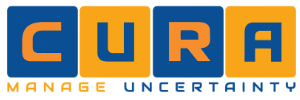Using the right software solutions is a key part of thriving as a modern business.
Software is important for a number of reasons – including optimising resilience, which has become particularly important given the worldwide shift in the way we work.
Software solutions are a powerful tool to mitigate the extensive variety of risks organisation are now faced with and must prepare for.
However, many organisations fall prey to the “plug and play” fallacy, which erroneously suggests that you can simply get new software, slot it into your existing systems, and achieve full value from this solution.
When it comes to enterprise-level implementations, plug and play is rarely feasible for long term success.
While the software may be easy to insert into your current systems, there are many other considerations that are key to the success of any implementation.
Insight from a CURA client
This was highlighted by Jonathan Le Roux, Chief Risk Officer at Lucara Botswana, in a recent webinar hosted by CURA.
Le Roux stated there are four important aspects that should be considered when adopting new software: technology, data, processes, and people.
While the technology itself may be plug and play, the remaining three aspects are just as important when implementing new software – and are seldom simple to implement in their own right.
In particular, the “people” aspect is often overlooked by organisations when implementing new software and can result in an extremely inefficient software implementation if not managed correctly.
It is crucial that your entire ecosystem of people is both onboard with new software solutions, and are equipped to use them efficiently.
This ranges from your board and executives to your end-users, as everyone must be on the same page for the solution to receive full buy-in and support.
Le Roux said this is why it is important that organisations take a phased approach to their software implementation journey, as this allows them to build a solid foundation upon which they can continue to grow.
By gradually and continuously introducing new software, you make it far easier for everyone to learn how to use these new technologies – and make these changes far less intimidating for all parties involved.
It is therefore crucial for organisations to see software implementations as a systemic process, rather than a siloed project.
Walk the journey with CURA
Lucara Botswana’s relationship with CURA has been key to creating mutual value and ensuring the success of their software implementation.
CURA is a leading provider of governance, risk, compliance, and risk-based audit software solutions, and works with over 250 enterprise customers to understand each organisation and its specific needs.
This, combined with the extensive resources CURA has available, makes any software implementation journey far more successful for these organisations.
Click here to learn more about CURA Software.
This article was originally published on as partner content on BusinessTech and MyBroadband











